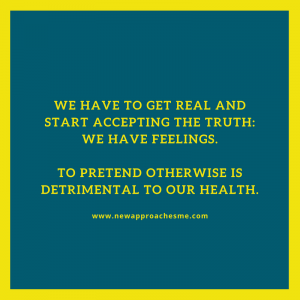 A few years ago, a brand new client told me he thought therapy was probably useless. I’ll be honest, that’s not a great start. It got worse. A few minutes later the client described what was going on in his life and gave me a very clear job: help me figure out how to keep doing the same things but feel differently about them.
A few years ago, a brand new client told me he thought therapy was probably useless. I’ll be honest, that’s not a great start. It got worse. A few minutes later the client described what was going on in his life and gave me a very clear job: help me figure out how to keep doing the same things but feel differently about them.
The client was right: therapy is absolutely useless for making the same choices that clearly don’t work and expecting to feel different. He was unimpressed by my suggestion that pehaps it was the feelings that needed some attention. We didn’t get too far.
Unfortunately, this person’s expectations of himself (and therapists) is very common. We have a culture of expecting ourselves to do things that we have feelings about, while ignoring those feelings.
I saw a recent video on Facebook that suggested that we have a moral imperative to act happy regardless of how we actually feel. I disagree wholeheartedly. You do have an ethicial obligation to not be mean and to dig deep and be mature. But you cannot and should not just “act happy.”
We have to get real and start accepting the truth: we have feelings. These feeling are not all “positive” and certainly not always pleasant. This is a normal function of being a human being. To pretend we don’t experience a full range of emotion is detrimental to our health.
Maybe it’s a relationship that drains you, and job that feels totally wrong for you, or a goal that you’re told is admirable but you feel horrible trying to get there: you have feelings and they are giving you information.
Emotions will not be overridden. They are there to give you feedback. They are incredibly valuable. We would not be human without them. In fact, we would be completely unsuccessful as a species without emotional information. We cannot bond to others, make simple decisions, or have a will to live, without emotional information.
In a suck it up culture, we are taught to suppress our feelings, at least the “negative” ones. We are taught to rely exclusively on thinking and to distrust emotion. Your feelings did not get this memo. They don’t care what you were taught. Emotions don’t respond to “supposed to’s,” they tell you how you actually feel.
Drink. Smoke. Use. Eat. Shop. Distract. Try all you want. Your emotions will be there ready to remind you of their messages the second they can break through again.
Often we end of up with clinical levels of anxiety and depression because our emotions have tried and tried to get our attention- and we keep ignoring them. In response, they continue to get bigger. We end up with bad habits and addictions trying to quell them. It’s like an alarm clock and you keep hitting snooze. Except this alarm clock gets louder and louder, trying desperately to wake you up.
Part of any emotional growth process is to start to tune into the feelings instead of override them. To be healthy, we have to feel our feelings, decipher the information, and make choices about how to act appropriately on the information.
This process is not particularly quick. There are no short cuts. A healthy, fulfilled life requires real attention and intention. It requires lifelong learning and growing. However, it’s likely the key to completely changing your life.


0 Comments